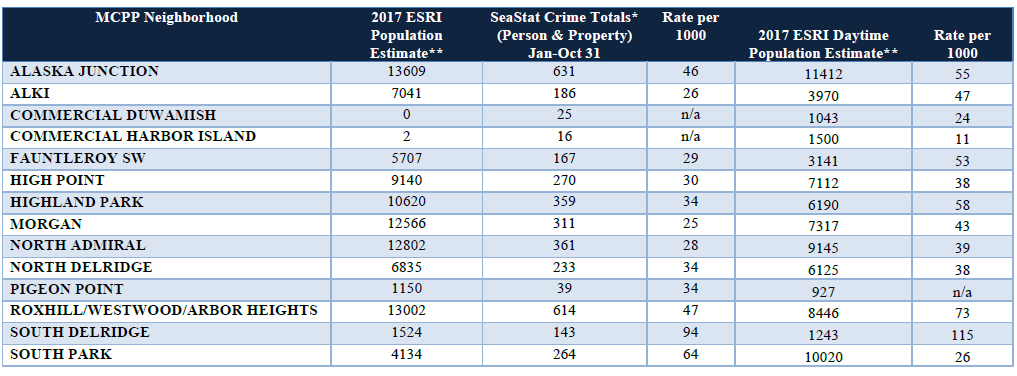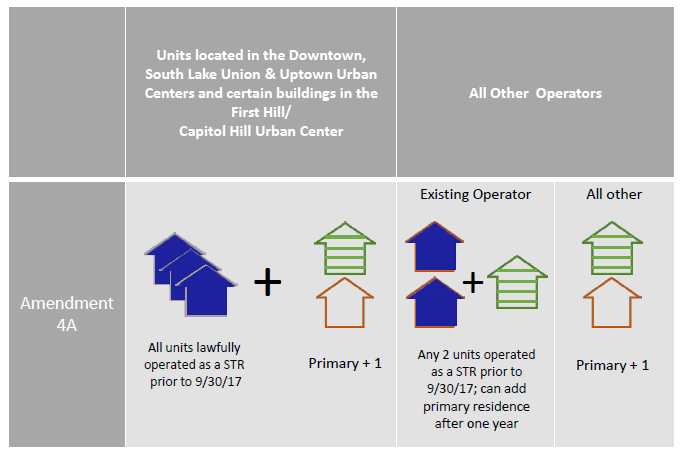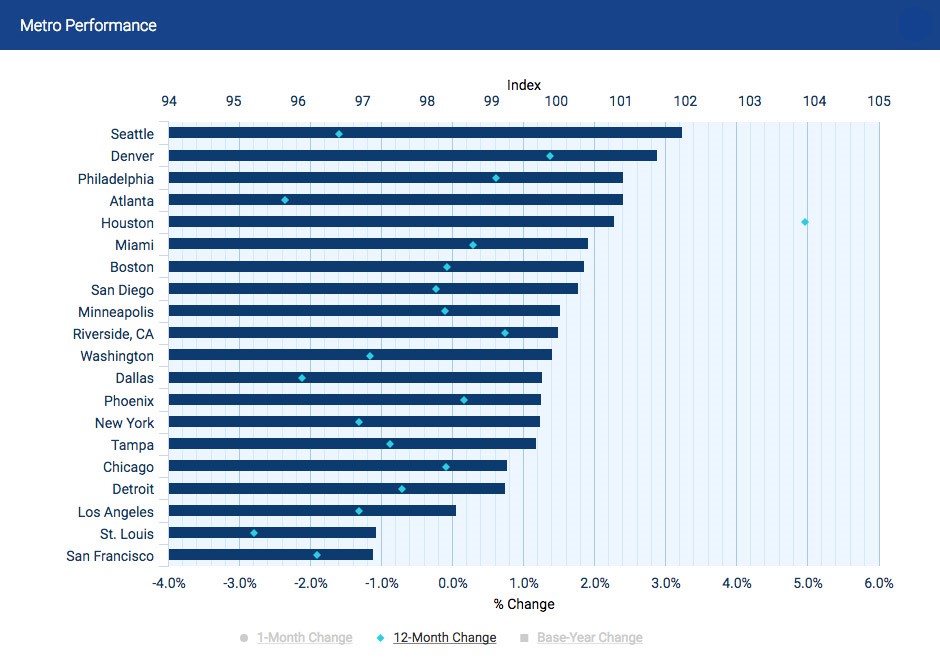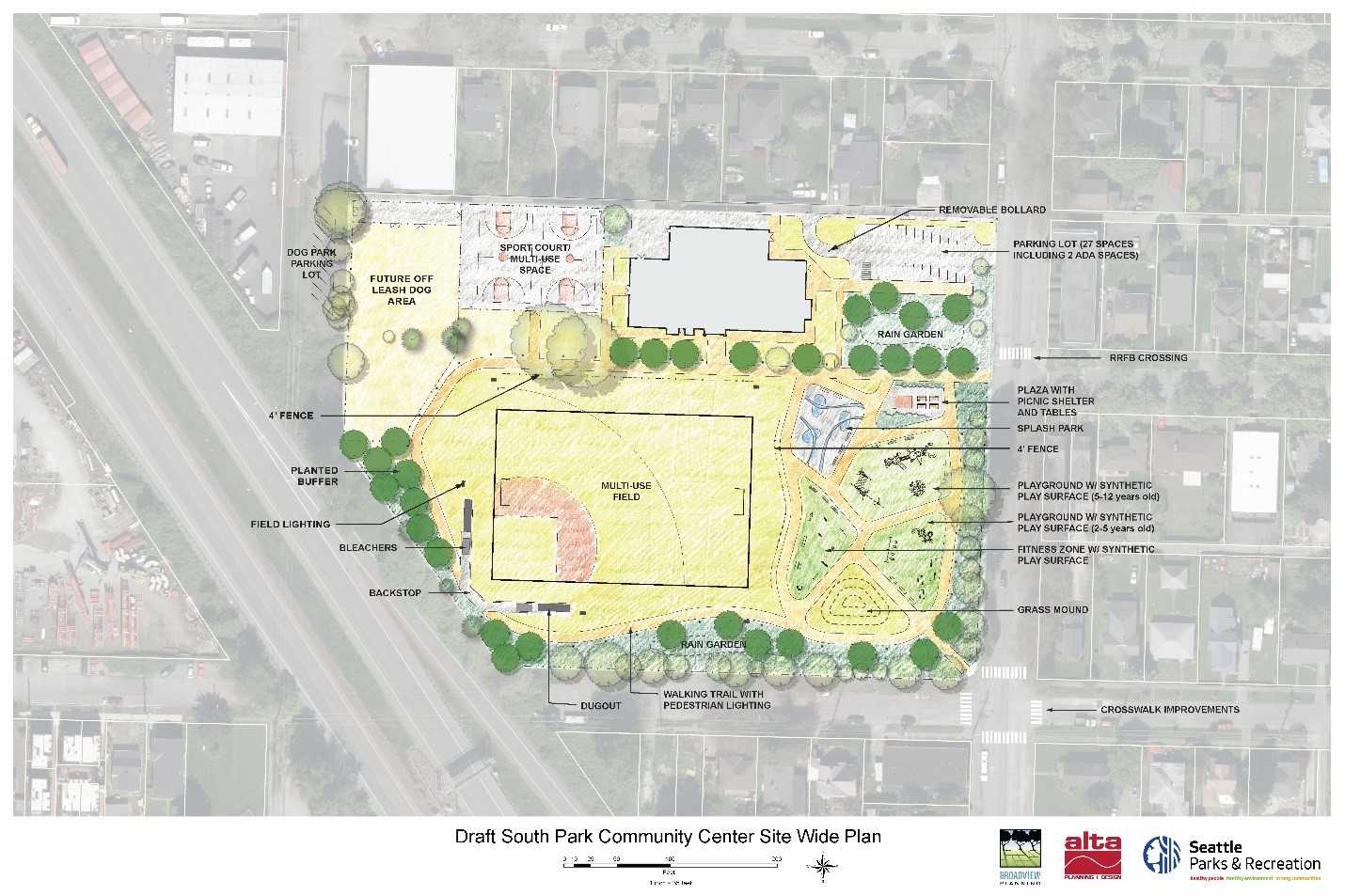South Park Crime Data; Vote on Short-Term Rentals; Seattle Ranks #1 for Small Business Growth; South Park Community Center
Southwest Precinct/South Park Crime Data
Recently I met with the Seattle Police Department about concerns regarding crime data for South Park. I’ve heard from South Park residents that crime statistics provided by SPD didn’t accurately reflect their experience.
Given the relatively small size of the neighborhood and number of residents, it seemed that crime statistics by neighborhood might not be the most accurate measurement; the population of neighborhoods in the SW Precinct have a wide range, from the 1150 residents in Pigeon Point, to 4134 in South Park, and 13,609 in the Alaska Junction.
Consequently, I asked SPD to develop per-capita measurements of crime.
The table below shows the results for the first 10 months of 2018 in the SW Precinct, and includes both person and property crime. South Park’s per capita crime rate for that time period was 94 64 per 1,000 residents, significantly higher than other neighborhoods, except for South Delridge, another small neighborhood.
SPD also included a measurement for per capita crime by daytime residents.
I also asked SPD to provide data for officer-generated calls for service in South Park. These calls are listed as “on-view” or “proactive” calls, that come from SPD officers on patrol. SPD has increased the amount of patrols in South Park since August, 2016. The number of calls for this 10-month period have increased from 521 in 2015, to 1,073 in 2016, to 1,997 in 2017.
Calls generated from the public have been 2,233 in 2015, 2,037 in 2016, and 2,046 in 2017.
Here’s a link to the SPD presentation, which includes person and property crime data for all SW Precinct neighborhoods (West Seattle and South Park) from 2015-2017. Thanks to SPD for putting this together; they’ve made great strides the last few years in making crime data more accessible to the public. SPD’s Crime Dashboard allows you to search crime data by neighborhood, precinct, from 2008 to the present. Their SeaStat program provides updates every two weeks.
Priorities for each of the Micro Community Policing Plans are available on the SPD website here. Micro Community Policing Plans (MCPP) are designed to address the distinctive needs of each community. You can find your neighborhood MCPP on the map here. MCPP’s are informed by public safety surveys conducted independently by Seattle University. Their two-year evaluation of MCPPs, published in January 2017, is linked here.
City Council Votes on Short-Term Rentals
On Monday, December 11th the City Council took its final vote on a suite of bills addressing how Seattle will regulate and tax short-term rentals (STR).
In June of 2016 Puget Sound Sage released a report entitled Brief: Dramatic Growth of a Short-Term Rentals in Seattle Could Reduce Apartment Supply. This report revealed significant growth in STR activity from September 2015 through April 2016. Including:
- Dramatic growth in listings at a rate of 50% per year, ending with 4,170 listings throughout the city.
- Two-thirds of Airbnb listings units are “whole units” which are homes that could potentially be used as long-term rentals.
- Only 12% of hosts list more than one unit, but this group hosted one-third of ALL Airbnb units and represented the most growth.
- While most of the whole unit growth was located in Seattle’s urban core, whole unit listings in communities at high risk of displacement grew as fast as the city-wide average.
- A projected loss of 1,000-1,500 additional long-term units in the next three years.
Underlying this issue is concern that continued growth of multi-listing hosts will undermine Seattle’s long-term housing stock at a time when the market is tighter than ever. My primary goal throughout this two-year process has been to return and maintain as many long-term rental units on the market as possible.
There are three short-term rental bills. The first, CB 119083, pertains to how the City taxes short-term rentals. Councilmember O’Brien and I proposed an amendment that modified the proposed flat tax in order to apply a different per-night tax of $8/ night for a single room versus a $14/night for an entire unit/house. This amendment also required that revenue generated from this tax would first be used to offset the cost of implementing and administering these STR regulations. The next $5 million dollars would then be utilized by the Equitable Development Initiative and the final $2 million dollars would be used to invest in affordable housing. This amendment was included in the bill which was unanimously passed by full council on November 13th, 2017.
The second bill relates to how STRs are addressed in the land-use code. CB 119082 has two parts. It first clarifies that short-term rentals are not necessarily an accessory use and are prohibited in caretaker’s quarters and second, ensures that Rental Registration & Inspection Ordinance (RRIO) requirements for short-term renters who are renting out their primary residence are consistent. This bill was passed by full council on December 4, 2017.
The third and final piece of the STR regulatory structure is Council Bill 119081. I heard many concerns from people who are renting out rooms in their homes or whose family has an additional home they are renting out. These constituents have expressed fears that short-term rental regulations might impact their ability to earn the needed additional income they get from these types of rentals. In an attempt to strike a balance between the potential negative impacts of short-term rentals on the city’s long-term housing stock and the STR income that some families rely on in order to afford to live in Seattle’s ever unaffordable housing market, I proposed several amendments to the regulatory portion of these bills. Amendments to CB 119081 that I sponsored or co-sponsored included:
- Ensuring that people operating rentals outside of the exempt areas and prior to September 30, 2017 could obtain a license to operate up to two units as short-term rentals AND
- Allowing for some growth for some existing operators. After 1 year, existing operators could add their primary residence making the total number of units they can operate 3. This would be any 2 units plus their primary residence.
- All other operators who did not have short-term rentals prior to September 30, 2017 would be able to obtain a license to rent out space in their primary residence plus one additional unit. (see chart below)
In addition to this amendment, as passed out of the Planning, Land Use and Zoning Committee, Councilmember O’Brien and I co-sponsored an amendment that would:
- Clarify that the director of Financial and Administrative Services (FAS) will review short-term rental license fees annually to ensure full cost recovery related to the implementation of short-term rental regulations.
- Ask FAS to make recommendations on the fee structure for short-term rental platforms, as opposed to operators, including recommendations on both a per-night fee as well as a graduated annual fee with tiers based on the number of listings on a platform or other factors identified by the Department. FAS will produce a written status update to Council by June 1, 2018 for our consideration and any potential next steps. Any potential fees would not go into place until after January 1, 2019.
All of these amendments passed and were included in the final bill passed by Full Council on December 11, 2017.
Council also passed an amendment sponsored by Councilmembers Sally Bagshaw and Mike O’Brien reducing the area that would be exempt from the proposed limits on dwelling units. With this amendment the exempt areas is now only Downtown Urban Center, south of Olive Way and north of Cherry Street.
Council will be receiving an implementation status report from Financial and Administrative Services June 1, 2018. The short-term rental regulations become effective on January 1, 2019.
Seattle Ranks #1 for Small Business Growth
In November Paychex IHS Small Business Employment Watch released data announcing the Seattle metro area as number one in the county for small business growth. The Metropolitan Jobs Index indicated that small business growth in Seattle is up 1.29%. While small business growth in Seattle ranks first in the nation, Seattle ranks 14th in hourly earning growth (up 2.49%) and 6th in weekly earning growth (up 3.65%).
According to Paychex HIS “ Small businesses represent nearly 95 percent of all U.S. employers.” Seattle’s Office for Economic Development (OED) works to maximize Seattle’s potential as a thriving hub for businesses and for economic growth for everyone in the city. OED provides services to businesses through advocacy, retention, and expansion assistance and workforce development. The Office of Economic Development supports Seattle area small businesses through its Only in Seattle Initiative, as well as small business consulting.
Only in Seattle is based on this set of core building blocks including business organization, business development, marketing and events, placemaking, safety and cleanliness. The Initiative provides grant funding and staff support to foster inclusive neighborhood business districts that allow small businesses to thrive. You can learn more about the Seattle Office of Economic Development and the Only in Seattle Initative here.
South Park Community Center Study and Draft Concept Design
As many of you in South Park already know, the Department of Parks and Recreation (DPR) has been conducting outreach to the community regarding the update to the playfield at the South Park Community Center. DPR has $700,000 dedicated for this update, including another $100,000 to move play features away from the highway, which was a recommendation of the King County Health Impact Assessment to limit noise and air pollution exposure from SR 99.
DPR is conducting another survey and asking for your participation, you can fill out the survey here. They have released their latest option based on community feedback from previous outreach. You can share your thoughts at the survey link, or if you have questions you can reach out to Karimah Edwards.
Posted: December 15th, 2017 under Bus, Councilmember Herbold, Economic Development, Parks and Recreation, Police Department, Public Health, Sound Transit, Transportation
Tags: crime, Seattle Police Department, short-term rentals, small business, South Park





